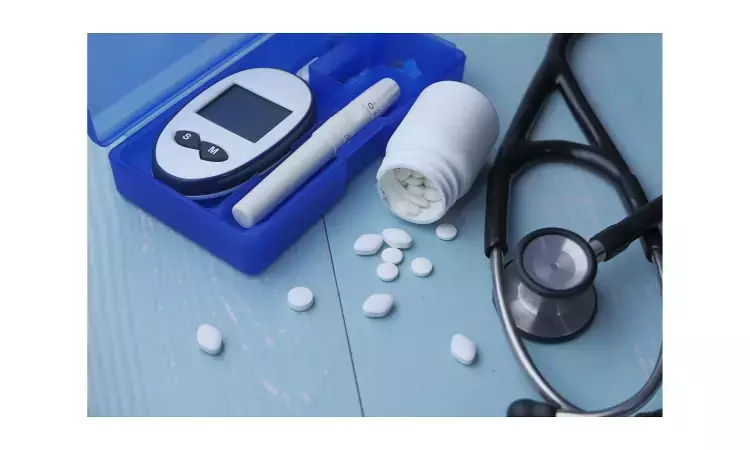- Home
- Medical news & Guidelines
- Anesthesiology
- Cardiology and CTVS
- Critical Care
- Dentistry
- Dermatology
- Diabetes and Endocrinology
- ENT
- Gastroenterology
- Medicine
- Nephrology
- Neurology
- Obstretics-Gynaecology
- Oncology
- Ophthalmology
- Orthopaedics
- Pediatrics-Neonatology
- Psychiatry
- Pulmonology
- Radiology
- Surgery
- Urology
- Laboratory Medicine
- Diet
- Nursing
- Paramedical
- Physiotherapy
- Health news
- Fact Check
- Bone Health Fact Check
- Brain Health Fact Check
- Cancer Related Fact Check
- Child Care Fact Check
- Dental and oral health fact check
- Diabetes and metabolic health fact check
- Diet and Nutrition Fact Check
- Eye and ENT Care Fact Check
- Fitness fact check
- Gut health fact check
- Heart health fact check
- Kidney health fact check
- Medical education fact check
- Men's health fact check
- Respiratory fact check
- Skin and hair care fact check
- Vaccine and Immunization fact check
- Women's health fact check
- AYUSH
- State News
- Andaman and Nicobar Islands
- Andhra Pradesh
- Arunachal Pradesh
- Assam
- Bihar
- Chandigarh
- Chattisgarh
- Dadra and Nagar Haveli
- Daman and Diu
- Delhi
- Goa
- Gujarat
- Haryana
- Himachal Pradesh
- Jammu & Kashmir
- Jharkhand
- Karnataka
- Kerala
- Ladakh
- Lakshadweep
- Madhya Pradesh
- Maharashtra
- Manipur
- Meghalaya
- Mizoram
- Nagaland
- Odisha
- Puducherry
- Punjab
- Rajasthan
- Sikkim
- Tamil Nadu
- Telangana
- Tripura
- Uttar Pradesh
- Uttrakhand
- West Bengal
- Medical Education
- Industry
Tirzepatide bests insulin glargine in lowering A1C, body weight and CV risk in diabetics: Lancet

Tirzepatide is a dual Glucose-dependent Insulinotropic Polypeptide (GIP) and glucagon-like peptide-1 (GLP-1) receptor agonist that is under development for the treatment of type 2 diabetes.
A new study by Prof Stefano Del Prato, MD and team has revealed that in people with type 2 diabetes and elevated cardiovascular risk, tirzepatide, showed greater efficacy than glargine in HbA1c reduction with a lower incidence of hypoglycaemia at 52 weeks.
Further adults with type 2 diabetes with increased cardiovascular (CV) risk experienced superior A1C and body weight reductions from baseline across all three doses of tirzepatide compared to titrated insulin glargine in detailed results from SURPASS-4 clinical trial.
These findings are published in The Lancet journal.
The objective of the study was to assess the efficacy and cardiovascular safety, of tirzepatide versus insulin glargine in adults with type 2 diabetes and high cardiovascular risk controlled on oral medications.
The study was open-label, parallel-group, phase 3 study conducted in 187 sites in 14 countries on five continents. Eligible participants, aged 18 years or older, with type 2 diabetes were treated with any combination of metformin, sulfonylurea, or sodium-glucose co-transporter-2 inhibitor, a baseline glycated haemoglobin (HbA1c) of 7•5–10•5% (58–91 mmol/mol), body-mass index of 25 kg/m2 or greater. Participants were randomly assigned (1:1:1:3) via an interactive web-response system to subcutaneous injection of either once-per-week tirzepatide (5 mg, 10 mg, or 15 mg) or glargine (100 U/mL). The primary endpoint was non-inferiority of tirzepatide 10 mg or 15 mg, or both, versus glargine in HbA1c change from baseline to 52 weeks. Safety measures were assessed over the full study period.
The results of the study were
• A total of 3045 participants were screened, with 2002 participants randomly assigned to tirzepatide or glargine. 1995 received at least one dose of tirzepatide 5 mg (n=329, 17%), 10 mg (n=328, 16%), or 15 mg (n=338, 17%), or glargine (n=1000, 50%), and were included in the modified intention-to-treat population.
• At 52 weeks, mean HbA1c changes with tirzepatide were −2•43% (SD 0•05) with 10 mg and −2•58% (0•05) with 15 mg, versus −1•44% (0•03) with glargine.
• Nausea (12–23%), diarrhoea (13–22%), decreased appetite (9–11%), and vomiting (5–9%) were more frequent with tirzepatide than glargine, in most cases were mild to moderate and occurred during the dose-escalation phase.
• The Adjudicated Major Adverse Cardiovascular Events occurred in 109 participants and were not increased on tirzepatide compared with glargine. A total of 60 deaths (n=25 tirzepatide; n=35 glargine) occurred during the study.
Prof Prato and team concluded that study suggested people with type 2 diabetes and elevated cardiovascular risk being difficult to manage, tirzepatide, demonstrated greater and clinically meaningful HbA1c reduction with a lower incidence of hypoglycaemia at week 52 than glargine. Tirzepatide treatment was not associated with excess cardiovascular risk.
Reference: DOI:https://doi.org/10.1016/S0140-6736(21)02188-7
Medical Dialogues consists of a team of passionate medical/scientific writers, led by doctors and healthcare researchers. Our team efforts to bring you updated and timely news about the important happenings of the medical and healthcare sector. Our editorial team can be reached at editorial@medicaldialogues.in.
Dr Kamal Kant Kohli-MBBS, DTCD- a chest specialist with more than 30 years of practice and a flair for writing clinical articles, Dr Kamal Kant Kohli joined Medical Dialogues as a Chief Editor of Medical News. Besides writing articles, as an editor, he proofreads and verifies all the medical content published on Medical Dialogues including those coming from journals, studies,medical conferences,guidelines etc. Email: drkohli@medicaldialogues.in. Contact no. 011-43720751


